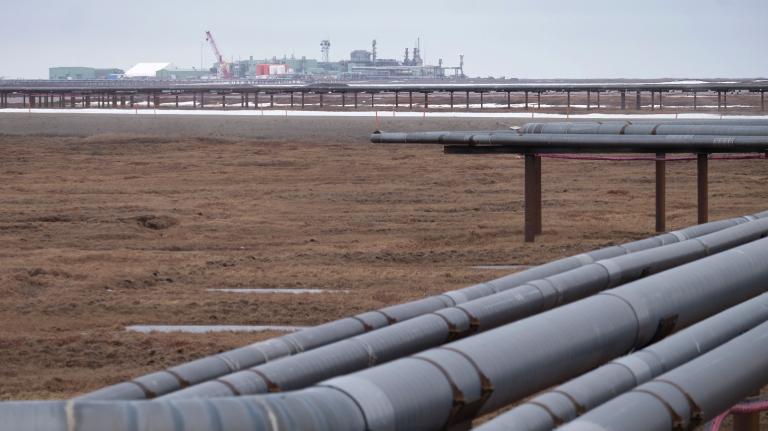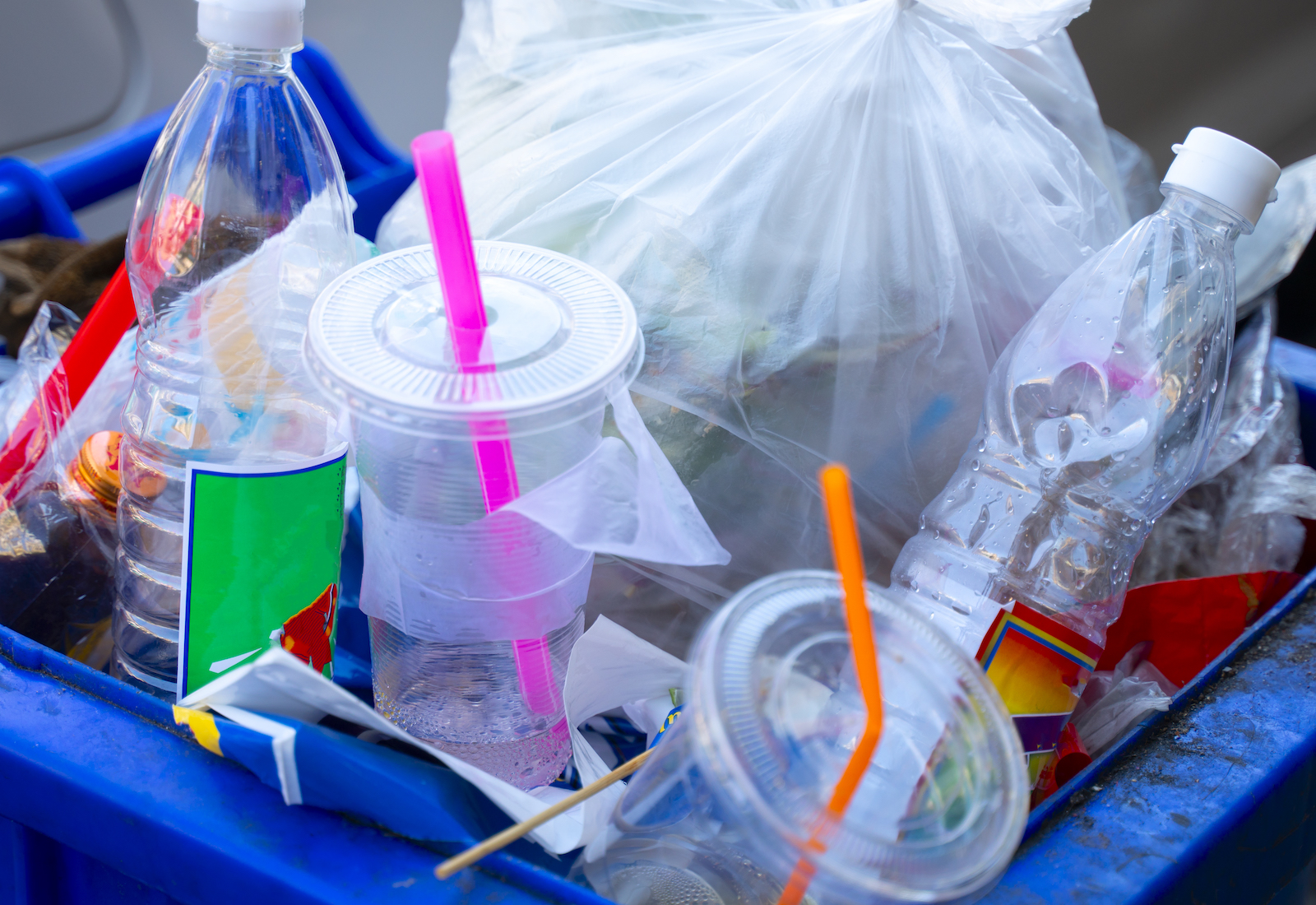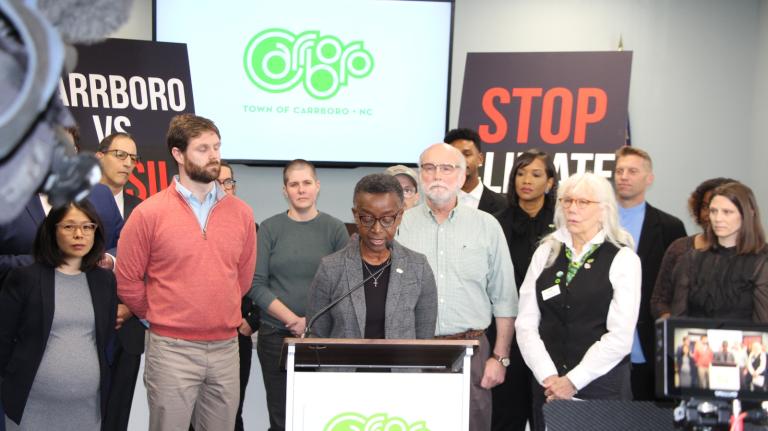The petrochemical industry has spent the past few years hard at work lobbying for state-level legislation to promote “chemical recycling,” a controversial process that critics say isn’t really recycling at all. The legislative push, spearheaded by an industry group called the American Chemistry Council, aims to reclassify chemical recycling as a manufacturing process, rather than waste disposal — a move that would subject facilities to less stringent regulations concerning pollution and hazardous waste.
The strategy appears to be working. According to a new report from the nonprofit Global Alliance for Incinerator Alternatives, or GAIA, 20 states have passed bills to exempt chemical recycling facilities from waste management requirements — despite significant evidence that most facilities end up incinerating the plastic they receive.
“These facilities are in actuality waste-to-toxic-oil plants, processing plastic to turn it into a subpar and polluting fuel,” the report says. Tok Oyewole, GAIA’s U.S. and Canada policy and research coordinator and the author of the report, called for federal regulation to crack down on the plastic industry’s “misinformation” and affirm chemical recycling’s status as a waste management process.
Chemical recycling is an umbrella term that refers to a handful of different processes. The most common ones, pyrolysis and gasification, start by melting discarded plastics under high heat and pressure, either in a low-oxygen atmosphere (pyrolysis) or by using air and steam (gasification). Both processes produce an oily liquid that can technically be re-refined back into plastic. However, despite decades of experimentation, the petrochemical industry has never been able to overcome economic and technological barriers to do so at scale.
Instead, the fuel produced by most chemical recycling facilities ends up being burned — either onsite or after being shipped to cement kilns and waste processors across the country. This allows companies to generate energy from the discarded plastic, but at great cost to the environment and public health: According to one recent investigation from the nonprofit Natural Resources Defense Council, a single chemical recycling facility in Oregon produces nearly half a million pounds of benzene, lead, cadmium, and other hazardous waste per year, along with hazardous air pollutants that can cause cancer and birth defects. The report also found that, of the eight chemical recycling facilities currently operating in the U.S., six are located near communities whose residents are disproportionately Black or brown. Five of these facilities are primarily “plastic-to-fuel” operations, two are turning plastic into chemical components whose end uses aren’t disclosed, and one claims to be turning carpet into nylon.
If pyrolysis and gasification can’t turn plastic back into plastic — not economically or at scale, anyway — why does the petrochemical industry want to pass legislation that calls it manufacturing?
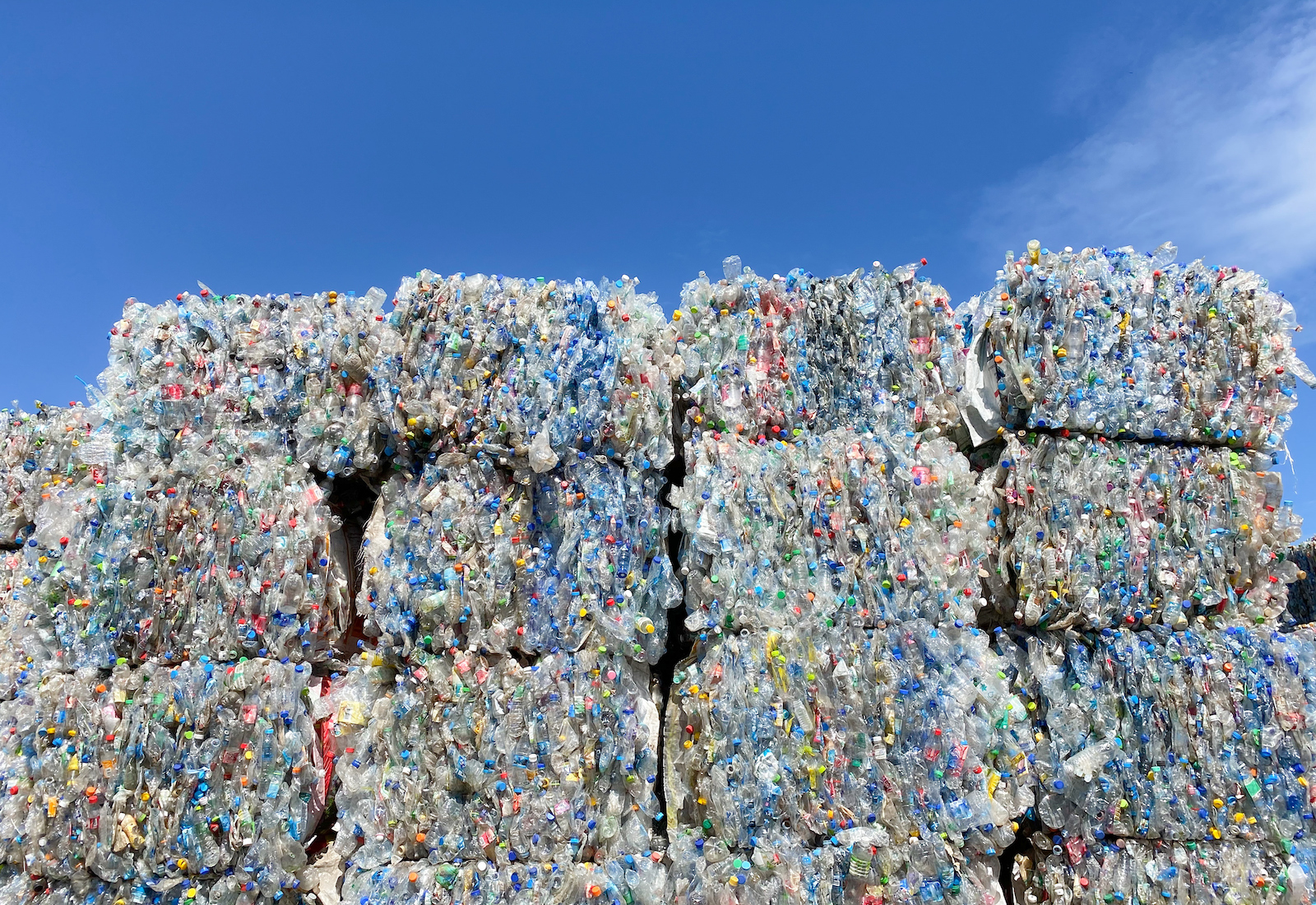
Lee Bell, a policy adviser for the International Pollutants Elimination Network, a coalition of more than 600 nonprofit organizations, said there are a couple reasons. First off, it’s a great PR move. What the industry wants, he explained, “is some sort of leverage to prevent regulation, and currently that’s what chemical recycling is.” By convincing lawmakers that they’re giving new life to old plastics, petrochemical companies may be able to stave off more stringent policies to crack down on plastic production. For example, in its opposition to a major plastic-reduction bill that recently passed in California, the American Chemistry Council cited its investments in chemical recycling.
The other reason is more immediate. Waste management facilities are usually subject to tighter public health and environmental regulations than manufacturing facilities — both at the federal level and by individual states. They may be required to submit toxic air contaminant inventories to regulators, or they may be subject to more stringent pollution caps.
Chemical recyclers don’t want to have to meet these regulations, said Veena Singla, a senior scientist for the NRDC. “They’re trying to duck those requirements and go for the more lax requirements for manufacturing.”
Jed Thorp, state director for the Rhode Island chapter of Clean Water Action, an environmental nonprofit, said he’s seen this firsthand in his own state, in a recent bill that proposed exempting new chemical recycling facilities from waste management regulations. Doing so, Thorp said, would have absolved the facilities’ operators from having to hold public hearings, accept comments from community members, and disclose the plants’ projected pollution.
The Rhode Island bill, which passed the state Senate in June, was ultimately rejected by House legislators, although Thorp expects it to return next year — potentially with smarter messaging from its petrochemical industry backers. Thorp said he expects groups like the American Chemistry Council to “reinvent the whole argument and talking points on this to be able to better sell it in the future.”
In response to Grist’s request for comment, the American Chemistry Council rejected the characterization of chemical recycling as incineration and pledged to continue advocating for it to be regulated as a manufacturing process. Matthew Kastner, a spokesperson for the trade group, said that solid waste regulations are often “irrelevant” to the processes involved in chemical recycling and that plastic-to-fuel is “no longer the focus” of most facilities.
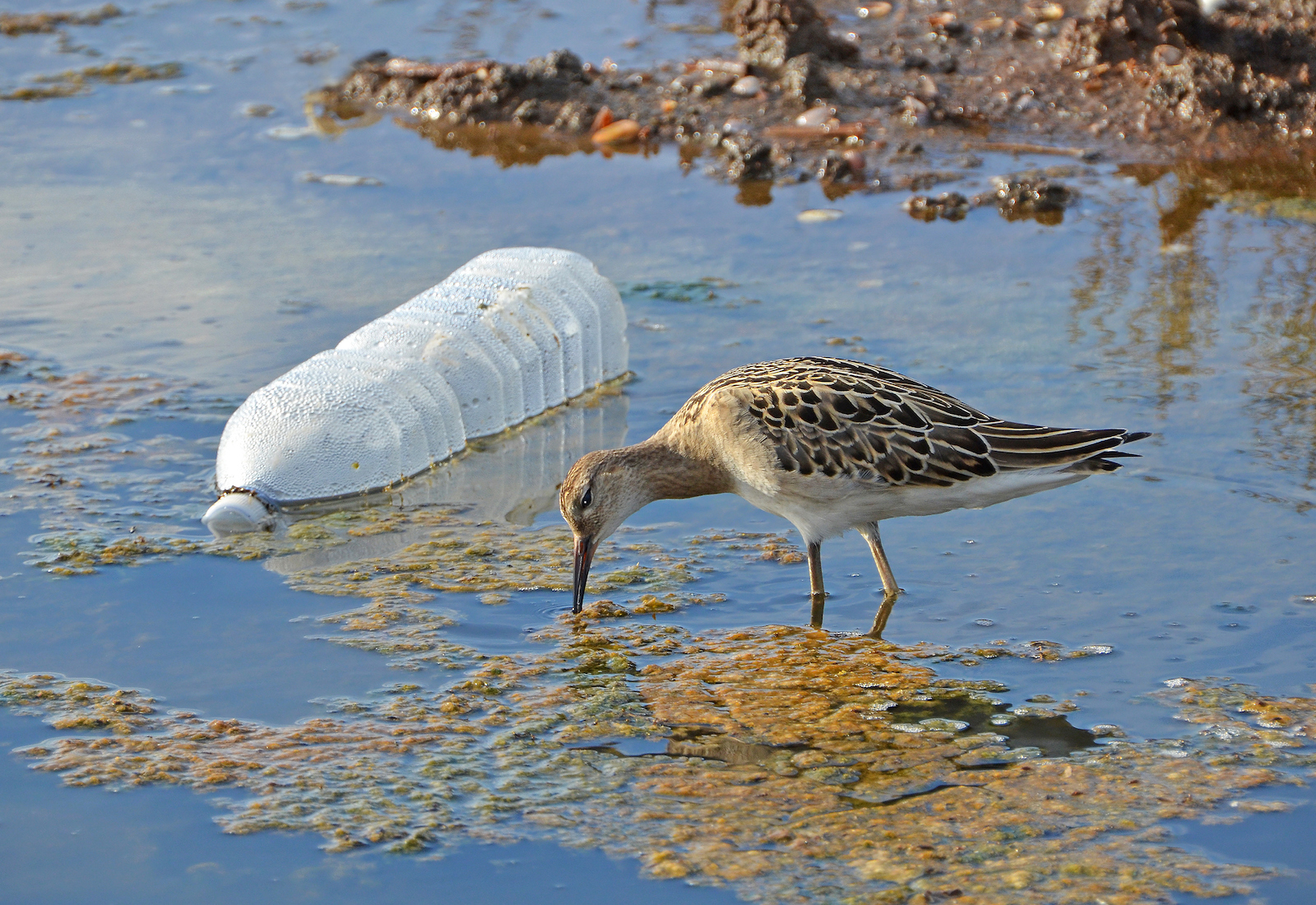
According to GAIA’s report, lawmakers have proposed legislation to exempt chemical recycling from waste management regulations in at least five other states, including Michigan and New York. Other bills not tracked by GAIA may provide financial incentives to build more pyrolysis and gasification facilities or explicitly count them as “recycling” in states’ extended producer responsibility laws. (These laws require plastic makers to foot the bill for recycling the products they make.)
The news isn’t all bad, however. GAIA identifies some positive trends, including legislative efforts in Oregon and Minnesota to accurately define pyrolysis, gasification, and other “chemical recycling” processes as incineration — aka waste management. Those bills were ultimately unsuccessful, but Oyewole said they suggest policymakers are catching on to the petrochemical industry’s strategy.
“Some legislators are learning more and not letting the wool be pulled over their eyes about what these processes are,” she said.
Another potentially positive sign: The Environmental Protection Agency announced last November that it had begun to consider whether chemical recycling should be regulated under Section 129 of the Clean Air Act. This would define chemical recycling processes as “incineration” once and for all — potentially delivering a forceful blow to the petrochemical industry’s state-by-state legislative strategy, although Oyewole said it’s unclear whether the agency’s determination would override existing state legislation.
Besides restricting plastic production — which is ultimately the most important solution to the plastic pollution crisis — Oyewole suggested some additional actions lawmakers could take to keep chemical recycling in check. For example, they could ban the burning of toxic chemicals that are frequently found in plastics, such as PFAS. Prioritizing environmental justice could also help. One bill introduced in Arizona, for example, would create an environmental justice task force to ensure community-wide participation and input in proposals to build industrial facilities — like chemical recycling plants — in low-income communities and communities of color.
Expanded public education may also be needed, Oyewole added, in particular to offset the petrochemical industry’s inaccurate use of the word “recycling.” “Thus far, the plastic industry has succeeded in presenting these facilities as positive and necessary by using the misleading labels of ‘chemical’ or ‘advanced recycling,’” GAIA said in its report.
Singla, with NRDC, offered an alternative way to refer to the process, joking that she should have used “waste-to-fuel” throughout her own organization’s report. That way, “we could have abbreviated it WTF.”
